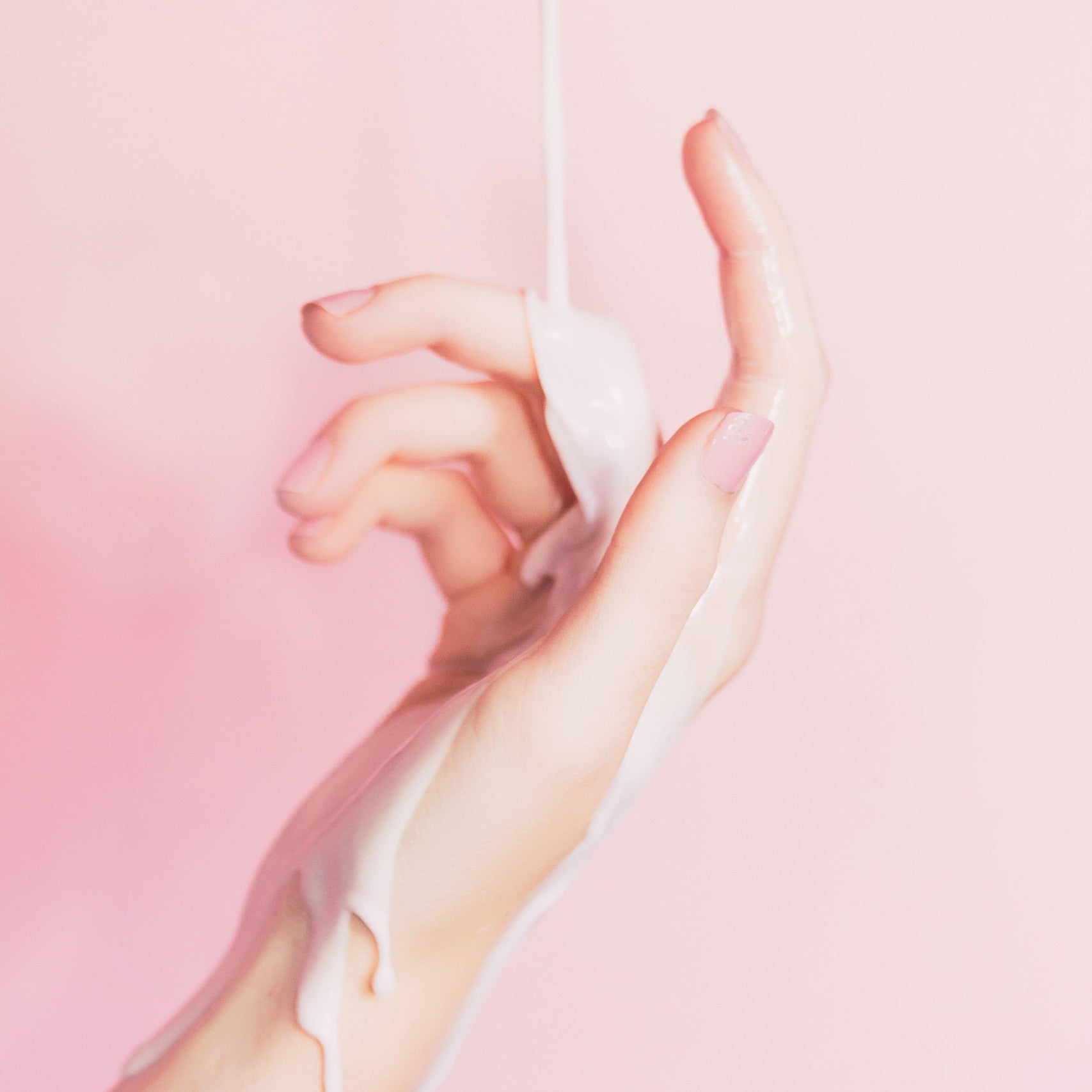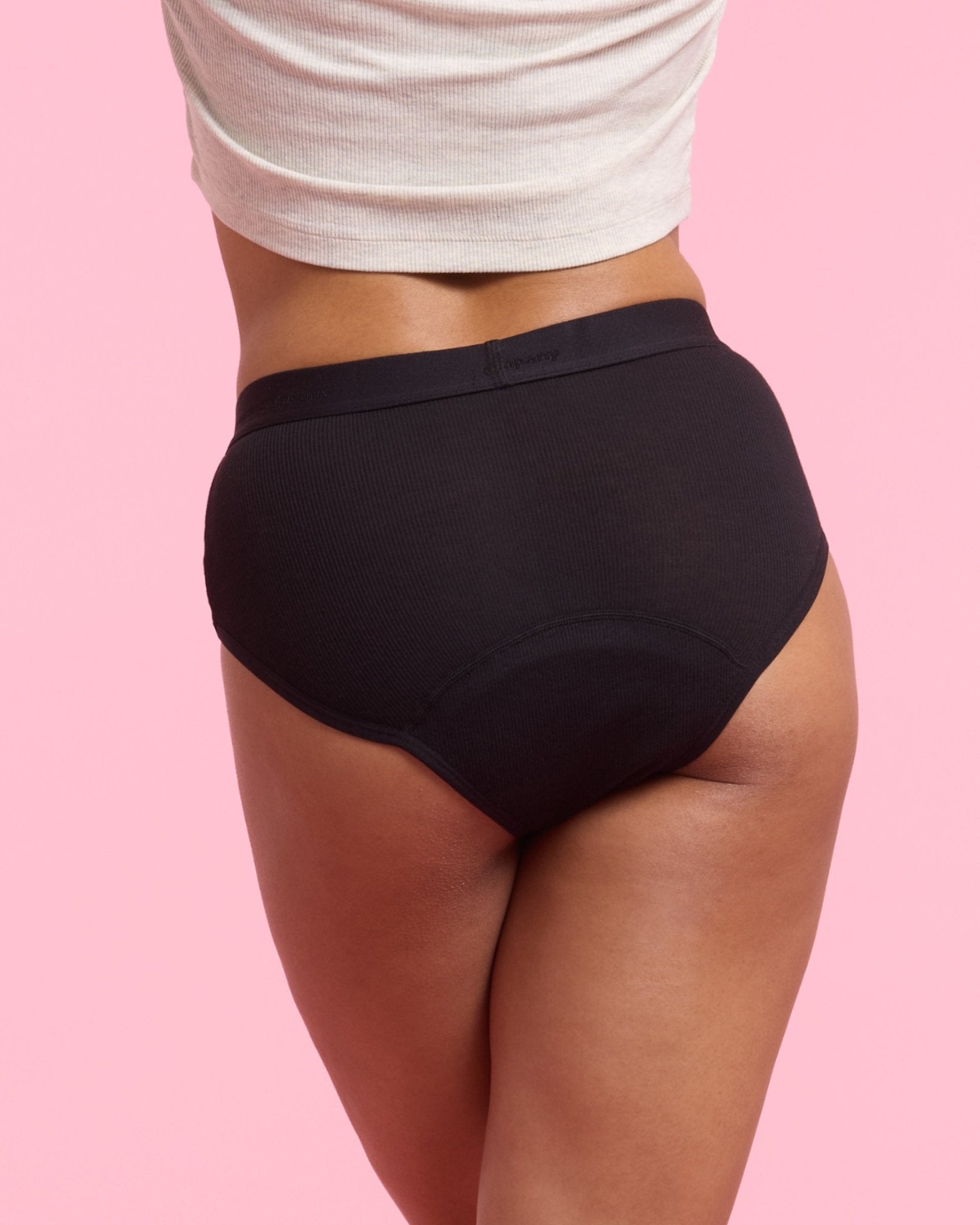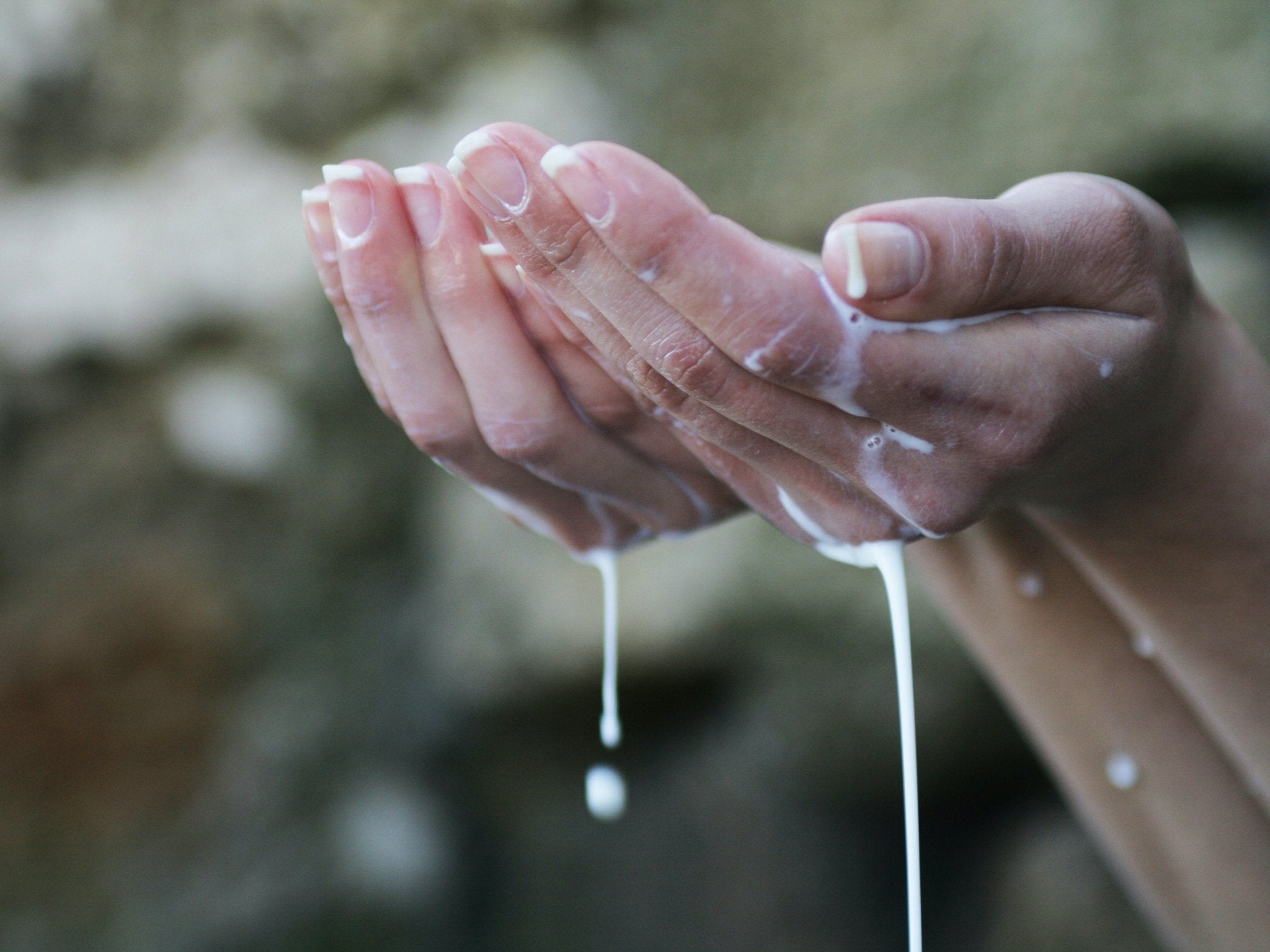You'll know it: sometimes you have more discharge, sometimes less. Sometimes it's very watery, sometimes very thick. This is because the discharge depends on our cycle . In other words, if you're ovulating, the discharge is different than on the infertile days. A normal cycle has 28 days and begins on the first day after your period.
In this article we explain how a cycle works and how the discharge changes in the different phases.
Summary
Our discharge depends on our cycle .
Depending on the phase of your cycle, you will have more or less discharge .
Hormonal contraceptives , such as the pill, can affect your discharge.
Table of contents
Contents
1. The middle of the cycle
If you're now wondering: "What is discharge anyway?" then read here .
Ovulation occurs around the middle of the cycle, after about 13 days. We are fertile!
The discharge in this phase of the cycle is usually somewhat heavier, relatively liquid and stretchy . This is because the ovarian hormones estrogen and progesterone stimulate the glands in the cervical canal to produce more secretion.
Beware of the magical attraction exerted by our vaginas during this phase - the pH of this secretion is in fact the same as that of semen , which "attracts" the sperm to the cervical canal.
2. After the bleeding
At the end of the cycle, some blood vessels in the uterine lining temporarily open and the top layer of the lining comes off. In order to shed it, the muscles of the uterus contract and relax at irregular intervals. Those of us who menstruate know that this can be quite unpleasant. During your period , you don't have any discharge, but you don't really notice it - it's still flowing out of you.
On the first day of the cycle, or after the period, there is hardly any discharge , quite the opposite - dryness can occur. Completely normal!
Wait a few days and more vaginal secretion should be produced again.
3. On infertile days

After the fertile days, the discharge changes again.
Infertile days are immediately after ovulation and up to about 6 days before ovulation .
During this phase, fertilization is not supposed to occur, so the discharge is stickier, thicker and viscous and only occurs in small amounts in the cervical canal.
Some lumpy discharge is also normal during this phase of the cycle.
4. Contraception through the pill
If you use hormonal contraception , for example with the pill, there are no cycle-dependent changes. The discharge is therefore only influenced by the hormones estrogen and progestin, which are contained in the pill.
Since the pill regularly supplies the body with these hormones , there are little to no changes in the discharge. It usually stays the same (haha).
This way, the sperm have no chance of reaching the uterus. The discharge changes not only when taking the pill, but when using any hormonal contraceptive.
The discharge will be as it normally is in the luteal phase , i.e. after ovulation and before menstruation. Depending on what your discharge is like in your natural cycle, this can result in more or less discharge.
If you've been taking the pill early on or for a long time, many people have no feeling (or no feeling) for their discharge. It's therefore shocking when you stop taking the pill and suddenly have wet panties. Have you ever experienced this yourself? Also completely normal.
Did you know : The color of your discharge can also change. Find out what the color tells you about your vaginal health here .
5. Ever heard of discharge panties?
Discharge underwear is underwear with a slightly absorbent insert and is designed to prevent the feeling of wet crotch caused by natural discharge in everyday life. In most cases, the whole thing works in a similar way to period underwear, with an absorbent and breathable insert in the crotch area. Daysics® has an extra short and thin insert - for an invisible look every day. The first layer has a honeycomb structure for absorption within seconds. A second layer is responsible for storing and drying the liquid. An integrated leak protection that blocks liquid but, unlike panty liners, allows air to circulate. And the fourth layer is made of organic cotton for maximum comfort. So there are a few alternatives to panty liners in everyday life and one that has been specially designed for this purpose. So embrace your discharge and try out what works best for you!
We are constantly trying to improve ourselves and our panties and adapt them to your needs. Our brand new Flexi Technology offers 90% improved absorbency and is an incredible 60% more absorbent than comparable seamless panties on the market. Tested and certified by the renowned Hohenstein Institute, Flexi Technology is the first European panty technology with a floating absorbent insert that adapts to your body and absorbs the blood exactly where it flows. With our innovative Fluid Protection seam processing, side leakage is a thing of the past.
In the shop you can now see our droplet system - 3 drops are the strong panties, 4 drops are the ones that are particularly absorbent.
And the best part: Our products are non-toxic, free of biocides and harmful substances, guaranteed, tested and certified! We use recycled polyester and are only 1 mm thicker than your usual underwear. In the future, all new panties that come out will be improved with exactly this technology. You can see which panties you can already order with Flexi Technology on the product pages. Welcome to a new era of period underwear!



































